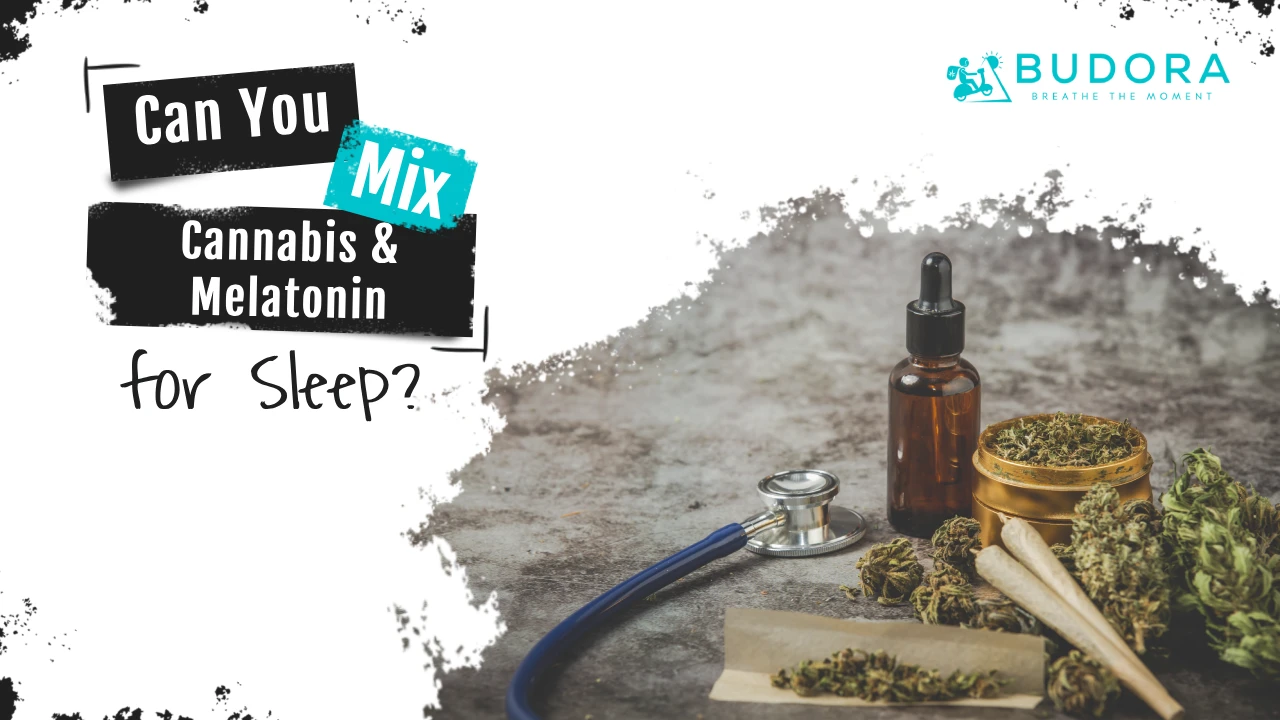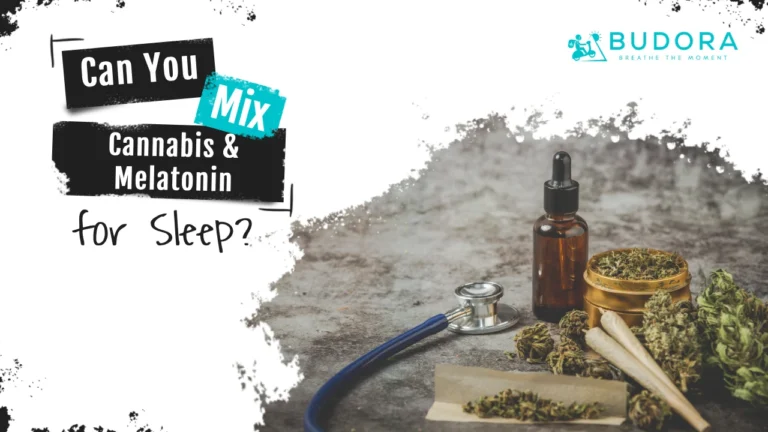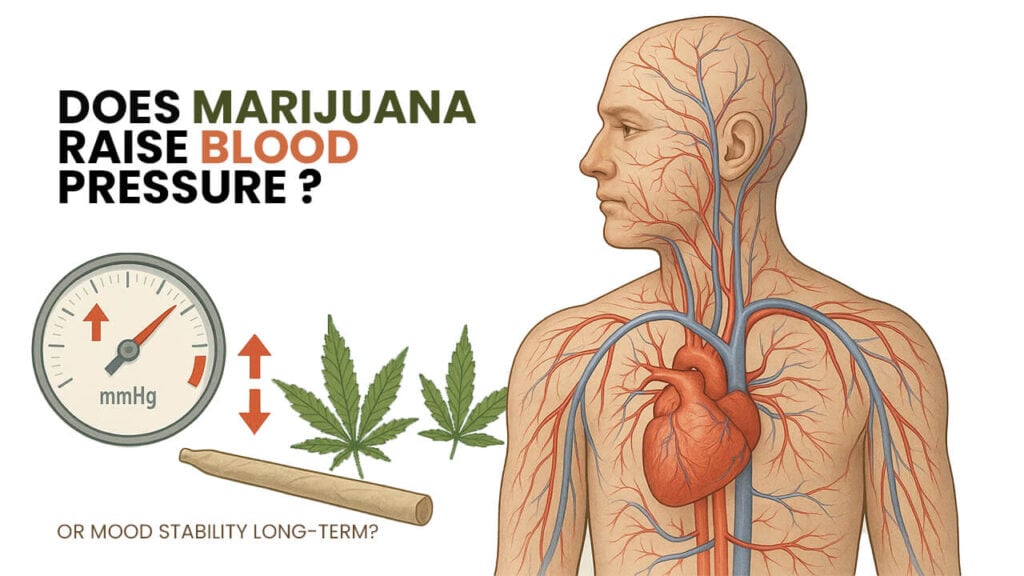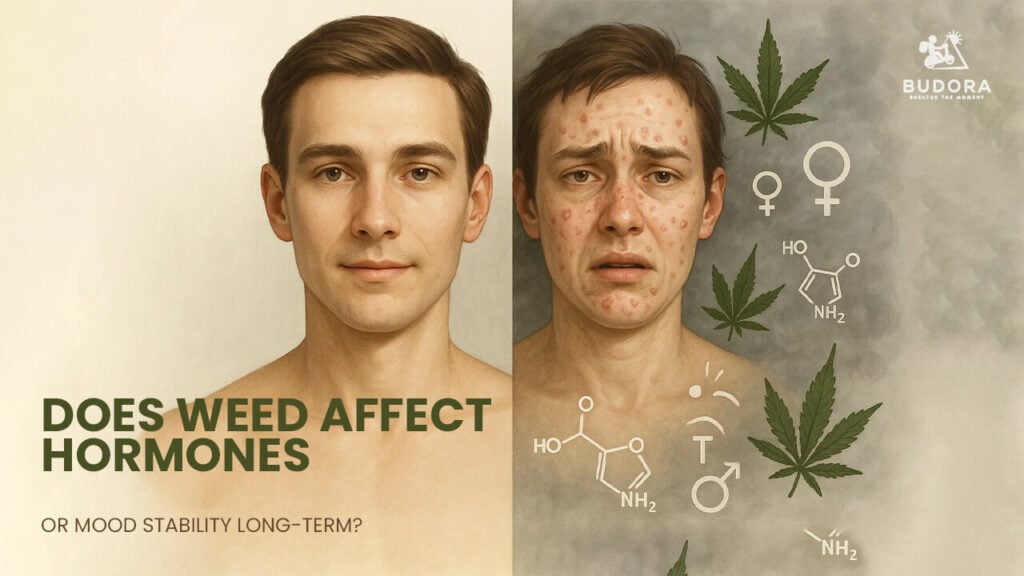Blog


Can You Mix Cannabis and Melatonin for Sleep?
- Budora Team
- No Comments
If you’re struggling with sleep issues, you may have considered natural remedies like cannabis or melatonin. But what happens when you combine the two? This comprehensive guide explores whether mixing cannabis and melatonin for sleep is effective and safe.
Key Highlights
- Combining cannabis and melatonin may enhance sedative effects, aiding sleep.
- Individual tolerance, dosage, and health conditions influence safety and effectiveness.
- Always consult a healthcare provider before combining supplements or drugs.
Understanding Cannabis and Melatonin
Cannabis contains compounds like THC and CBD that interact with the body’s endocannabinoid system, influencing sleep patterns. Melatonin is a hormone naturally produced by the pineal gland, regulating the sleep-wake cycle. Both are commonly used to address sleep issues, but their combined effects warrant careful consideration.
What Does Science Say?
Research on cannabis and melatonin for sleep is still evolving. Some studies suggest cannabis (particularly indica strains or CBD-heavy products) can reduce sleep latency. Melatonin, on the other hand, is effective in rebalancing circadian rhythm disruptions.
While there’s limited data on combining both, anecdotal evidence and emerging interest suggest potential synergy. However, experts recommend caution due to the lack of long-term studies.
Potential Benefits of Combining Cannabis and Melatonin
Some individuals explore mixing cannabis and melatonin to enhance sleep quality. Potential benefits include:
Enhanced Sedation
Both substances can promote drowsiness, potentially aiding in faster sleep onset. If you’re unsure where to begin, exploring cannabis strains for sleep can provide helpful information on strains commonly associated with relaxation and better sleep.
Complementary Effects
While cannabis may reduce REM sleep, melatonin can increase it, potentially balancing sleep stages.
Reduced Dosage Needs
Combining the two might allow for lower doses of each, minimizing side effects.
Risks and Considerations
Despite potential benefits, combining cannabis and melatonin can pose risks.
- Increased Drowsiness: The sedative effects may be amplified, leading to excessive sleepiness or impaired alertness.
- Cognitive Impairment: Users may experience confusion, dizziness, or difficulty concentrating.
- Variable Responses: Individual reactions can vary based on factors like dosage, tolerance, and overall health.
It’s crucial to consult with a healthcare provider before combining these substances, especially if taking other medications.
Best Practices for Combining Cannabis and Melatonin
If considering this combination:
- Start Low and Go Slow: Begin with the lowest effective doses to monitor effects.
- Choose Appropriate Strains: Opt for cannabis strains known for their calming properties, such as indica-dominant varieties like Comatose or Pink Kush.
- Timing Matters: Take melatonin 30-60 minutes before bedtime and use cannabis accordingly to align their effects.
- Monitor Effects: Keep a sleep journal to track benefits and any adverse reactions.
Natural vs Synthetic Melatonin
There’s growing concern over synthetic melatonin products. Natural sources, such as tart cherry extract or plant-based supplements, may pair better with cannabis and melatonin for sleep due to fewer additives and smoother absorption.
Long-Term Use Considerations
While occasional use may be beneficial, long-term combination use raises concerns:
- Tolerance: THC tolerance builds over time, requiring more for the same effect.
- Melatonin Disruption: Overuse may interfere with your body’s natural melatonin production.
- Sleep cycle distortion: Disrupted REM cycles can impact dream quality and memory consolidation.
Use both only when necessary and consult with a sleep specialist if insomnia persists.
Alternative Natural Sleep Aids
For those hesitant about combining cannabis and melatonin, consider these alternatives:
- Valerian Root: An herbal remedy known to promote relaxation and improve sleep quality.
- Chamomile Tea: A mild sedative that can help ease anxiety and facilitate sleep.
- Lavender Aromatherapy: The scent of lavender has been shown to enhance sleep quality.
- Magnesium Supplements: Magnesium plays a role in supporting deep, restorative sleep.
Conclusion
Combining cannabis and melatonin for sleep may provide relief for people struggling with insomnia, but it’s not a one-size-fits-all solution. Be cautious, start with low doses, and consider speaking with a healthcare provider for personalized advice. Consulting with a healthcare professional can provide personalized guidance based on individual health needs and circumstances. Exploring alternative natural sleep aids and maintaining good sleep hygiene practices are also valuable strategies for improving sleep quality.
FAQs
Can you take melatonin with weed?
Yes, but start with low doses of each and observe how your body reacts. Avoid combining them frequently unless advised by a healthcare provider.
What are the effects of combining melatonin and THC?
You may experience deeper sleep and quicker sleep onset, but also risk feeling groggy or mentally foggy in the morning.
Are there weed and melatonin interactions with other meds?
Yes, especially with sedatives, antidepressants, or antihistamines. Speak to your doctor first.
Can I take melatonin and CBD for sleep?
Yes, as the two support sleep in different ways. Melatonin helps reset your circadian rhythm to promote timely sleep, while CBD can ease anxiety and stress—factors that often disrupt sleep. Using both may improve sleep onset and continuity, but start with low doses and monitor effects closely.
Why is melatonin no longer widely recommended?
Melatonin is available over the counter as a dietary supplement and is not FDA-approved. Due to a lack of regulation, some melatonin products may contain inaccurate dosages or undisclosed additives such as CBD or other supplements, raising safety concerns.
What is the miracle drug for insomnia?
Daridorexant is a newer prescription medication designed specifically to treat insomnia. Unlike traditional sleep aids, it works by targeting orexin receptors that regulate wakefulness, helping users fall asleep faster and stay asleep longer with potentially fewer side effects.
Like this article?

Budora Team
OTHER ARTICLES YOU MAY LIKE



